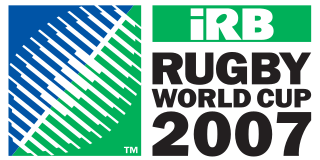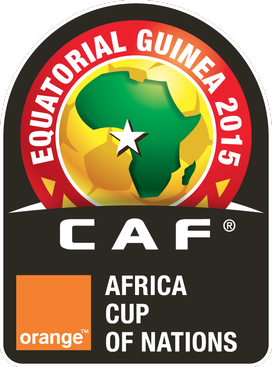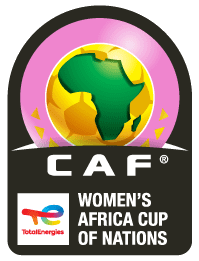Group stage
Group A
| Teams | Pld | W | D | L | PF | PA | +/− | Pts |
|---|---|---|---|---|---|---|---|---|
| 3 | 3 | 0 | 0 | 74 | 34 | +40 | 9 | |
| 3 | 2 | 0 | 1 | 48 | 27 | +21 | 7 | |
| 3 | 1 | 0 | 2 | 27 | 62 | -35 | 5 | |
| 3 | 0 | 0 | 3 | 17 | 43 | -26 | 3 |
Group B
| Teams | Pld | W | D | L | PF | PA | +/− | Pts |
|---|---|---|---|---|---|---|---|---|
| 3 | 3 | 0 | 0 | 62 | 14 | +48 | 9 | |
| 3 | 2 | 0 | 1 | 55 | 10 | +45 | 7 | |
| 3 | 1 | 0 | 2 | 26 | 74 | -48 | 5 | |
| 3 | 0 | 0 | 3 | 17 | 62 | -45 | 3 |
The 2012 African Sevens was an international rugby sevens competition organized by the Confederation of African Rugby. It was the fourth edition of the African Sevens, which had been held every four years since the year 2000, and served as the African continental qualifier for the 2013 Rugby World Cup Sevens. [1] The tournament, hosted together with 2012 African Women's Sevens, was held in Rabat on September 29–30, 2012.
The tournament was played at Stade Bourgogne in the Moroccan city of Rabat. The event was attended by eight rugby sevens nations. On the first day they were playing in two groups of four. The second day there were places at stake was not only the medals of the event, but also two places in the finals of 2013 World Cup.
The teams from South Africa and Kenya, who had already qualified for the World Cup, did not compete. In their absence, Zimbabwe won the competition, defeating Tunisia in the final. [1] The two finalists gained promotion to the World Cup in 2013.
| Teams | Pld | W | D | L | PF | PA | +/− | Pts |
|---|---|---|---|---|---|---|---|---|
| 3 | 3 | 0 | 0 | 74 | 34 | +40 | 9 | |
| 3 | 2 | 0 | 1 | 48 | 27 | +21 | 7 | |
| 3 | 1 | 0 | 2 | 27 | 62 | -35 | 5 | |
| 3 | 0 | 0 | 3 | 17 | 43 | -26 | 3 |
| Teams | Pld | W | D | L | PF | PA | +/− | Pts |
|---|---|---|---|---|---|---|---|---|
| 3 | 3 | 0 | 0 | 62 | 14 | +48 | 9 | |
| 3 | 2 | 0 | 1 | 55 | 10 | +45 | 7 | |
| 3 | 1 | 0 | 2 | 26 | 74 | -48 | 5 | |
| 3 | 0 | 0 | 3 | 17 | 62 | -45 | 3 |
| Semi-finals | Final | |||||
| 30 September 2012 – Stade Bourgogne | ||||||
| 10 | ||||||
| 30 September 2012 – Stade Bourgogne | ||||||
| 22 | ||||||
| 24 | ||||||
| 30 September 2012 – Stade Bourgogne | ||||||
| 7 | ||||||
| 12 | ||||||
| 7 | ||||||
| Third place | ||||||
| 30 September 2012 - Stade Bourgogne | ||||||
| 5 | ||||||
| 14 | ||||||
| Semi-finals | Final | |||||
| 30 September 2012 – Stade Bourgogne | ||||||
| 0 | ||||||
| 30 September 2012 – Stade Bourgogne | ||||||
| 7 | ||||||
| 12 | ||||||
| 30 September 2012 – Stade Bourgogne | ||||||
| 33 | ||||||
| 19 | ||||||
| 14 | ||||||
| Third place | ||||||
| 30 September 2012 - Stade Bourgogne | ||||||
| 12 | ||||||
| 19 | ||||||
| Rank | Nation | Notes |
|---|---|---|
| 1 | promoted to 2013 World Cup | |
| 2 | promoted to 2013 World Cup | |
| 3 | ||
| 4 | ||
| 5 | ||
| 6 | ||
| 7 | ||
| 8 |

The Men's Rugby World Cup is a rugby union tournament contested every four years between the top international teams, the winners of which are recognised as the World champions of the sport.

The SVNS, known as the HSBC SVNS for sponsorship reasons, is an annual series of international rugby sevens tournaments run by World Rugby featuring national sevens teams. Organised for the first time in the 1999–2000 season as the IRB World Sevens Series, the competition was formed to promote an elite-level of international rugby sevens and develop the game into a viable commercial product. The competition has been sponsored by banking group HSBC since 2014.
The Hong Kong Sevens is a rugby sevens tournament held annually in Hong Kong on a weekend in late March or early April. Considered the premier tournament on the World Rugby Sevens Series competition, the Hong Kong Sevens is currently the seventh tournament on the World Series calendar. The tournament spans three days, beginning on a Friday and concluding on Sunday. The tournament is organised each year by the Hong Kong Rugby Union (HKRU). Due to the COVID-19 pandemic, the tournament was cancelled in 2020 and 2021 respectively. The latest Hong Kong Rugby Sevens is being held on Friday 5 April, Saturday 6 April, Sunday 7 April 2024.

The Africa Cup of Nations, commonly abbreviated as AFCON and officially known as the TotalEnergies Africa Cup of Nations for sponsorship reasons, is the main international men's association football competition in Africa. It is sanctioned by the Confederation of African Football (CAF) and was first held in 1957. Since 1968, it has been held every two years, switching to odd-numbered years in 2013.

The 2007 Rugby World Cup was the sixth Rugby World Cup, a quadrennial international rugby union competition organised by the International Rugby Board. Twenty nations competed for the Webb Ellis Cup in the tournament, which was hosted by France from 7 September to 20 October. France won the hosting rights in 2003, beating a bid from England. The competition consisted of 48 matches over 44 days; 42 matches were played in 10 cities throughout France, as well as four in Cardiff, Wales, and two in Edinburgh, Scotland.

Rugby sevens is a variant of rugby union in which teams are made up of seven players playing seven-minute halves, instead of the usual 15 players playing 40-minute halves. Rugby sevens is administered by World Rugby, the body responsible for rugby union worldwide. The game is popular at all levels, with amateur and club tournaments generally held in the summer months. Sevens is one of the most well distributed forms of rugby, and is popular in parts of Africa, Asia, Europe, and the Americas, and especially in the South Pacific.

The Ivory Coast national rugby union team, nicknamed Les Éléphants, participates in the annual Africa Cup and are considered a third tier rugby team.

The Morocco national rugby union team are a national sporting side, representing Morocco in rugby union. The team is also known as the Atlas Lions. Morocco is governed by the Fédération Royale Marocaine de Rugby. Morocco competes in the Africa Cup annually. The team has won the competition in 2003 and 2005. They usually play their internationals in Casablanca.

The Rugby Africa Cup is a two-year men's rugby union tournament involving the top 16 African nations based on their World Rugby rankings, it is organised by Rugby Africa. The tournament was first held in 2000. It was renamed the Rugby Africa Cup in November 2019, it was previously called the Africa Cup since 2006, the CAR Top 9 and CAR Top 10.

The Africa Women's Sevens is the continental championship for women's international rugby sevens in Africa. The tournament sanctioned and sponsored by Rugby Africa which is the rugby union governing body for the continent.

The 2015 Africa Cup of Nations, known as the Orange Africa Cup of Nations, Equatorial Guinea 2015 for sponsorship reasons, was the 30th staging of the Africa Cup of Nations, the international men's football championship of Africa. It was organized by the Confederation of African Football (CAF) and was held from 17 January to 8 February 2015.
The 2012 Africa Cup was the twelfth edition of the Africa Cup, an annual international rugby union tournament for African nations organised by the Confederation of African Rugby (CAR). The tournaments between 2012 and 2014 will also serve as qualifiers for the 2015 Rugby World Cup.

The 2018 Rugby World Cup Sevens was the seventh edition of the Rugby World Cup Sevens. Organized by World Rugby, it was held at AT&T Park, now known as Oracle Park, in San Francisco, United States. A total of 84 matches were played over three days from July 20–22, 2018. The men's tournament had 24 teams and the women's tournament 16, with both tournaments being played for the first time in a knock-out only format. New Zealand won the championship for both events — defeating England in the men's final and France in the women's final.
The Africa Men's Sevens, formerly the Africa Cup Sevens, is an annual rugby sevens tournament involving African nations, organised by Rugby Africa. Since 2013 the event has been contested on an annual basis.
The Confederation of African Rugby was allotted one place in the 1999 Rugby World Cup by direct qualification and one place in the repechage tournament. This was in addition to the automatic qualifying place granted to South Africa as champions of the 1995 tournament.

The Women's Africa Cup of Nations (WAFCON), known for sponsorship purposes as the TotalEnergies Women's Africa Cup of Nations and formerly the African Women's Championship, is a biennial international women's football tournament organized by the Confederation of African Football (CAF) since 1991 as the qualification for the FIFA Women's World Cup for African nations. Initially started as a home-and-away qualification competition, it got rechristened as a biennial tournament in 1998 and took on its current name as of the 2016 edition.
This was the qualifications of the men to the 2013 Rugby World Cup Sevens aimed at selecting men's national teams in the Rugby sevens, which appeared in the finals in Moscow.
The 2017 Rugby Africa season contains a series of rugby union tournaments scheduled for 2017 and organised by the governing body of rugby union in Africa, Rugby Africa. The top-tier event is the Rugby Africa Gold Cup – formerly simply known as the Africa Cup – a six-team competition which was played on a round-robin basis from June to August 2017.
The Morocco women's national under-20 football team, nicknamed the Atlas Lionesses, represents Morocco in international youth women's football competitions. Its primary role is the development of players in preparation for the senior women's national team. The team competes in a variety of competitions, including the biennial FIFA U-20 Women's World Cup and African U-20 Women's World Cup qualification, which is the top competitions for this age group.
The men's tournament for the 2022 Rugby World Cup Sevens was held in Cape Town, South Africa from 9 to 11 September at the Cape Town Stadium.